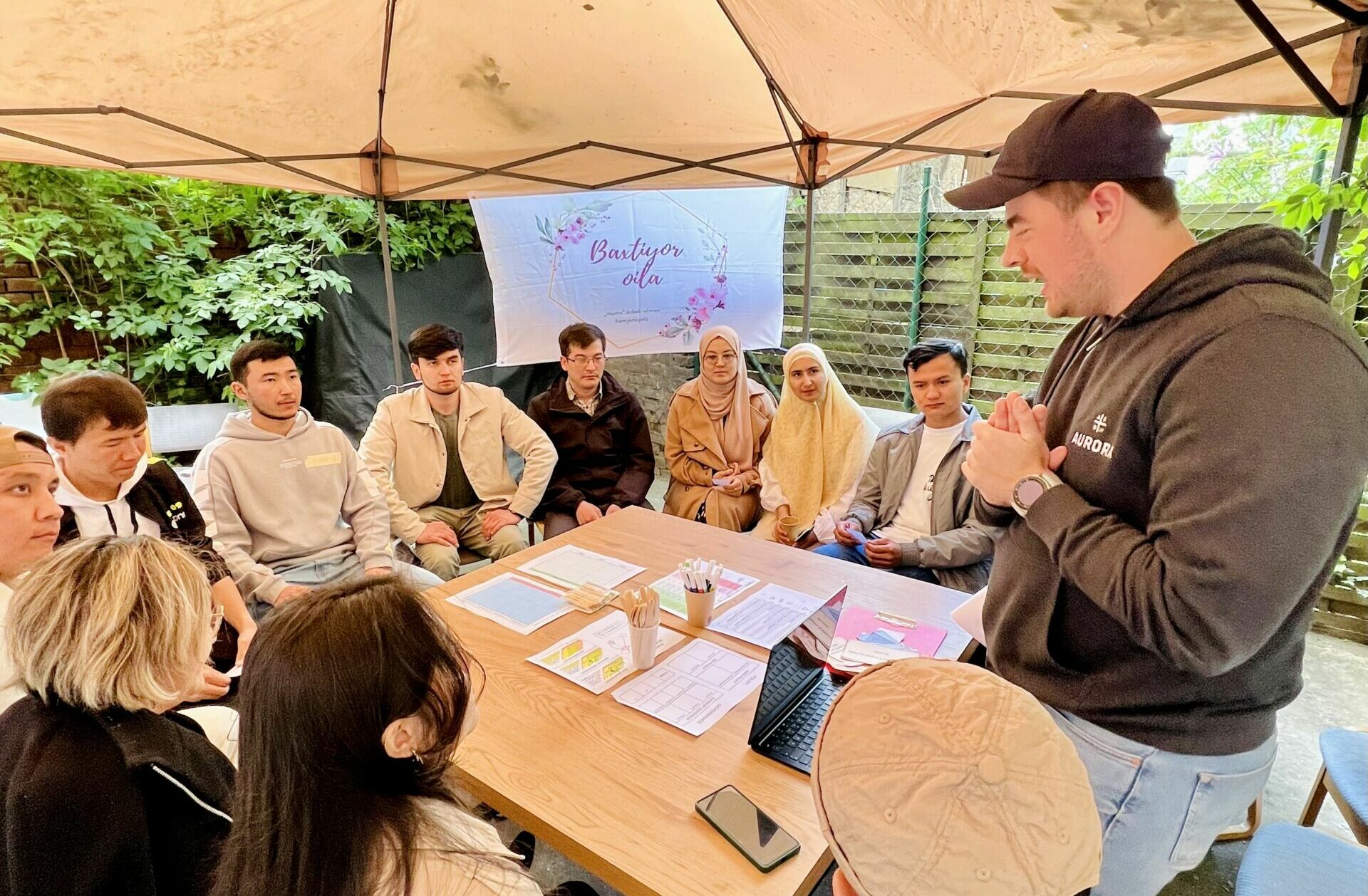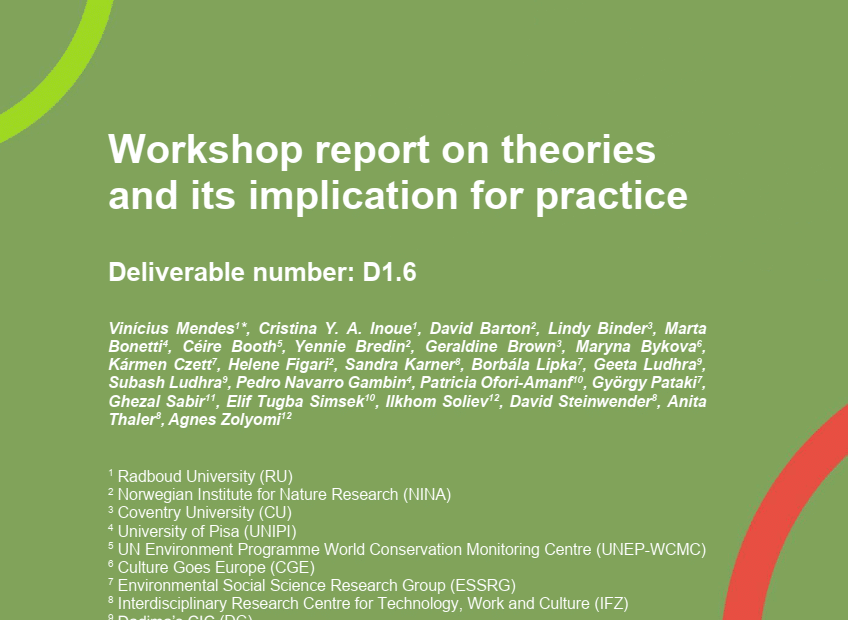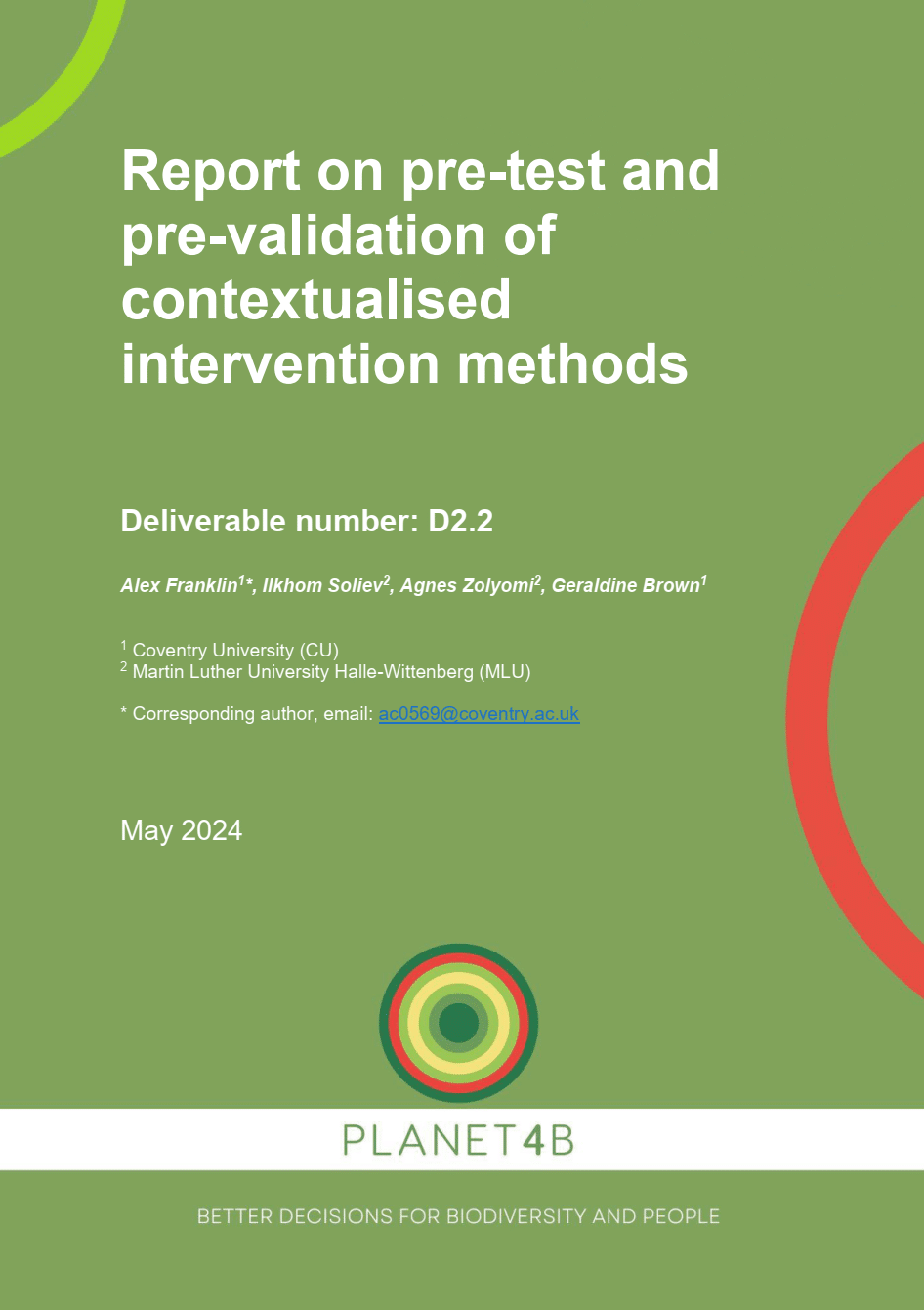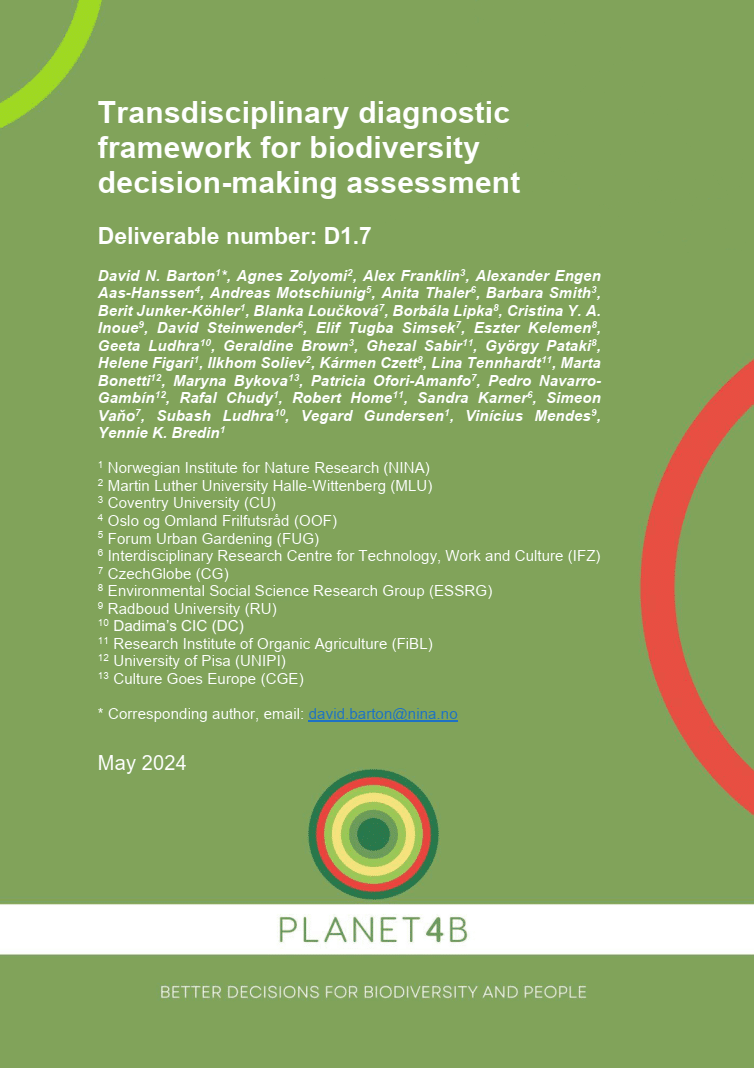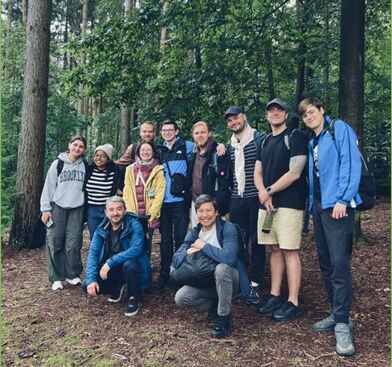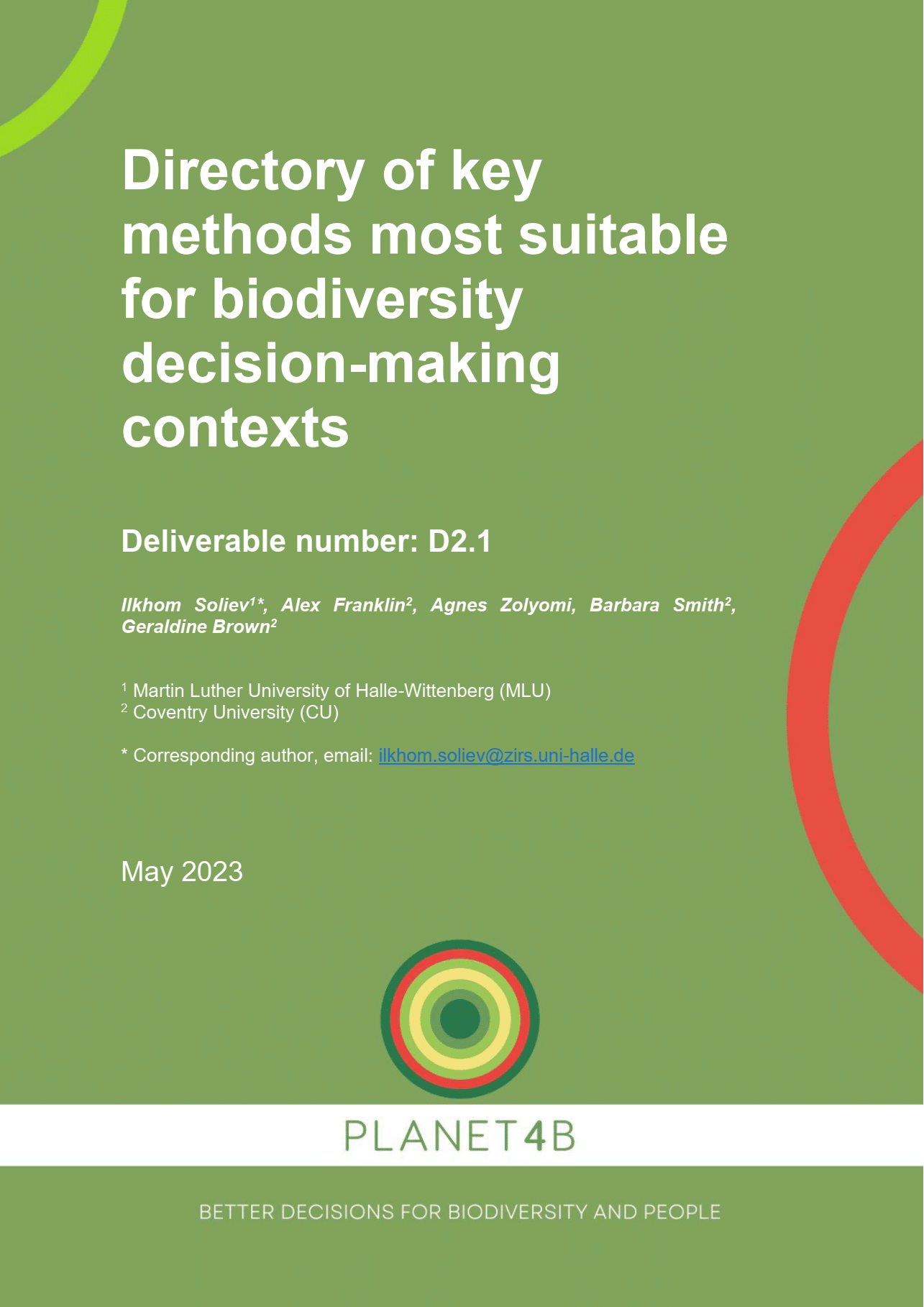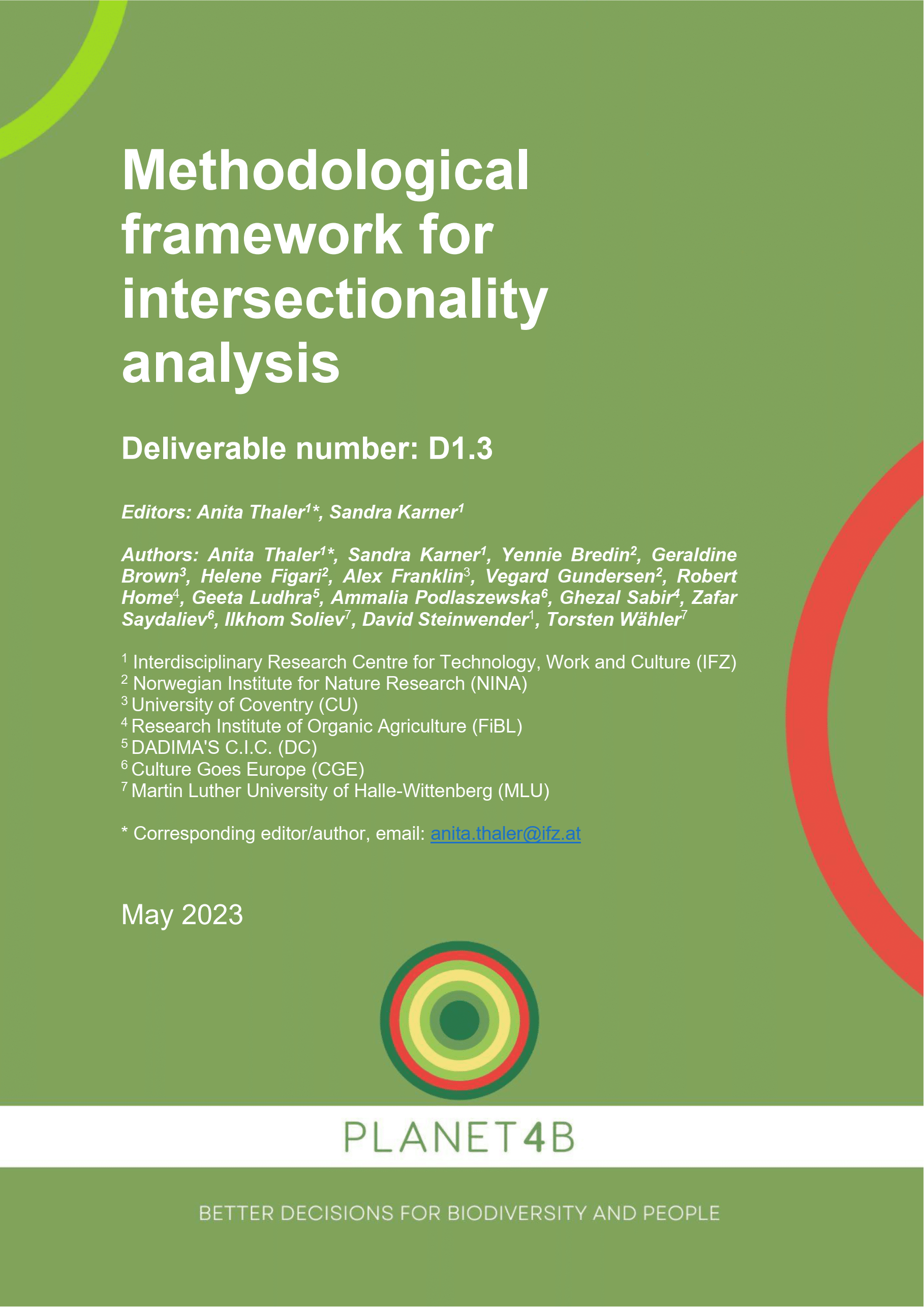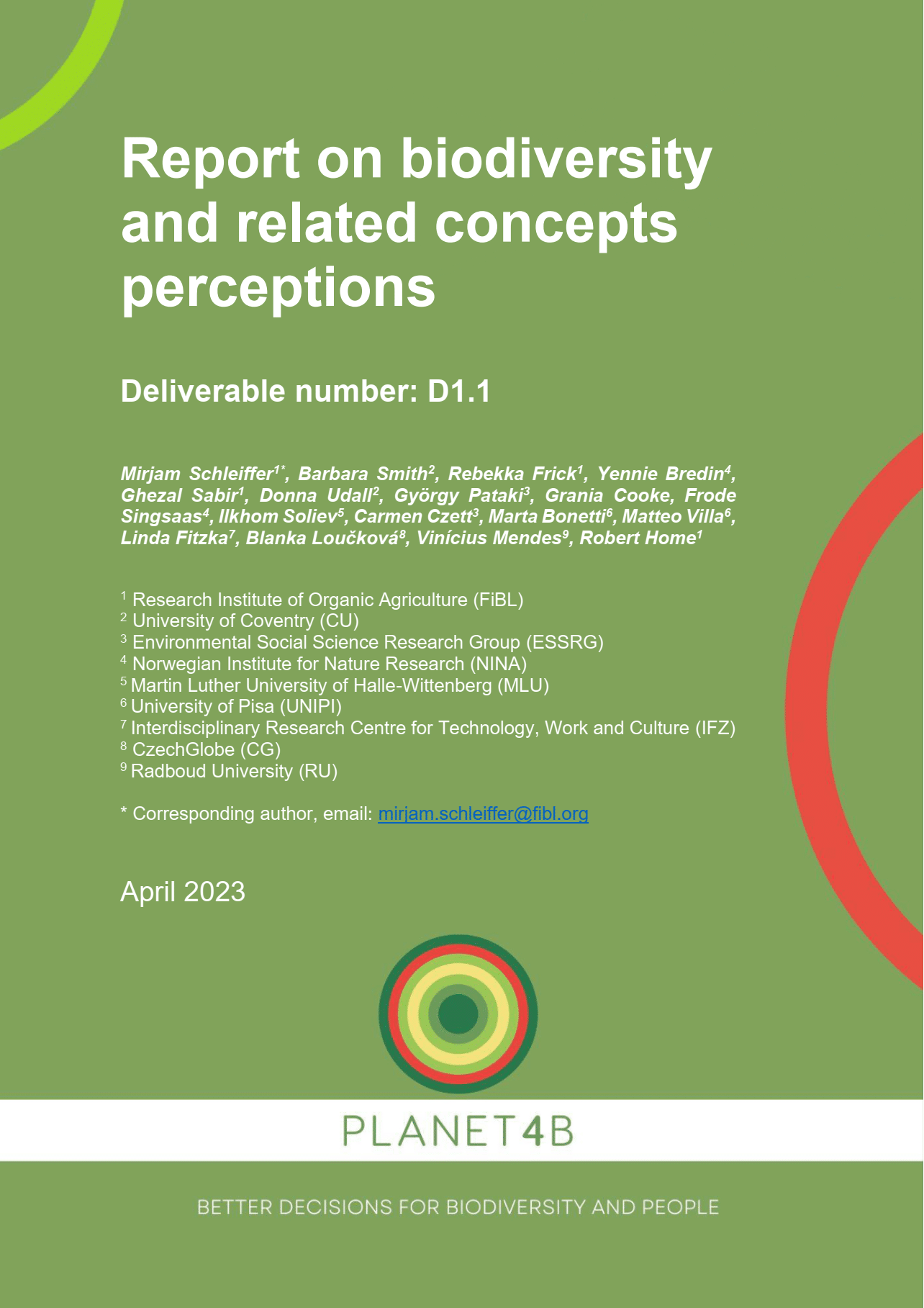Project documents
Read and download the materials, reports and publications developed throughout the project.
Latest documents
- Behaviour Biodiversity brief intersectionalityResearch brief
Engaged science: changing mindsets with research intervention method sets
The document provides a brief summary of the Report on pre-test and pre-validation of contextualised intervention methods, which describes and analyses the methodologies applied, pre-tested, and adapted by the PLANET4B case studies.
- Behaviour Biodiversity researchWorkshop report
Workshop report on theories and its implication for practice
The aim of the joint working methodology is to understand each other's knowledge base, mindset and expectations, so that project partners (academics, practice partners and societal stakeholders) can work effectively on common research topics. To address this challenge, social science theories and methodologies applied in the project were debated in a workshop to explore their practical [...]
- Behaviour intersectionality researchResearch report
Report on pre-test and pre-validation of contextualised intervention methods
This report documents the internal PLANET4B process of selecting, pre-testing, adapting and aligning individual research-based intervention methods to the eleven individual case studies. It provides an overview of how the task of aligning intervention methods to intersectional and biodiversity challenges of individual case studies was managed by the Task leads and engaged with by the wider consortium, including through a [...]
All documents
- Behaviour intersectionality researchResearch report
This report documents the internal PLANET4B process of selecting, pre-testing, adapting and aligning individual research-based intervention methods to the eleven individual case studies. It provides an overview of how the task of aligning intervention methods to intersectional and biodiversity challenges of individual case studies was managed by the Task leads and engaged with by the wider consortium, including through a range of collective – online, offline, in-person, plenary, small-group – and independent case study level working. [...]
- Behaviour Biodiversity intersectionality researchResearch report
This deliverable describes the process of developing a transdisciplinary diagnostic framework for biodiversity decision-making carried out in Work Package 1 of the EU funded research project PLANET4B. The aim of the process was to help researchers and practitioners in our project become more conscious of the theoretical approaches and languages that may condition the interventions we study and the policy and additional recommendations that we make to societal actors. The [...]
- Behaviour intersectionality researchResearch report
“One key challenge is the deep level of engagement required by stakeholders (especially members of the Learning Communities). As no financial incentives are provided to participants, their motivation to get engaged depends mostly on how well the learning objectives align with their aspirations.” - highlights the lead researcher in the report of establishing Learning Communities and Advisory Boards. The local and virtual communities established in frame of PLANET4B project help [...]
- Behaviour BiodiversityResearch report
This report introduces a directory of 100 key intervention methods most suitable for biodiversity decision making contexts, organised across three main categories: experiential games; framing and nudging experiments; and creative, arts-based and deliberative methods.
- Behaviour BiodiversityResearch report
To tackle this interlinkage of inequalities in the field of biodiversity, PLANET4B aims at utilizing the concept of intersectionality. Intersectionality highlights that race, gender, disability, sexuality, class, age, and other social categories are interrelated and lead to different levels of power and oppression influenced by forces like colonialism and neoliberalism.
- Behaviour Biodiversity PolicyResearch report
Using biodiversity to persuade: A discourse analysis
The meaning we assign to the world around us influences the way we behave and treat things. Therefore, it is of great importance to better understand how society views and understands fundamental challenges of our time, such as biodiversity loss. This knowledge will help to make social, political, or economic interventions more effective in preserving and enhancing biodiversity and also help communicate adequately about the issue of biodiversity loss. The [...]

